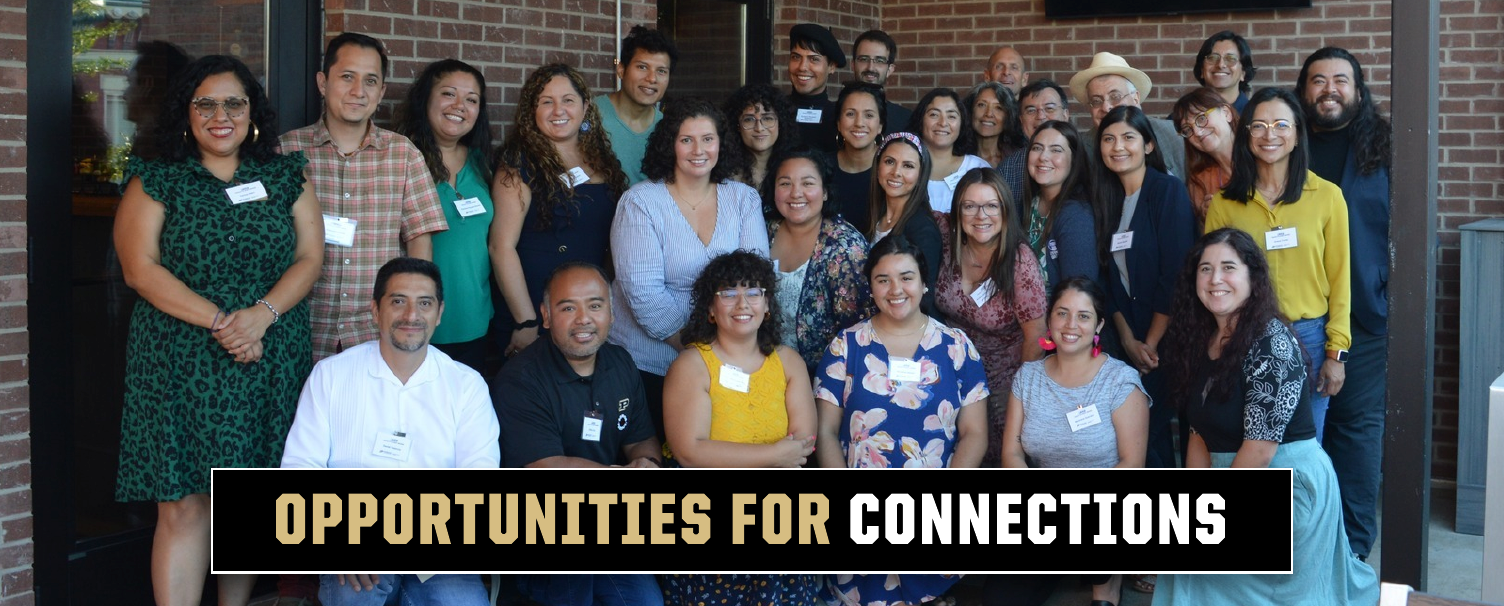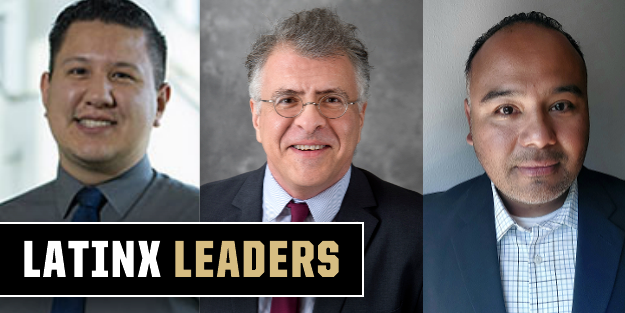
Latino Faculty and Staff Association builds a sense of belonging
As the population of Latinx faculty and staff members has grown over the last several years, organizations like the Latino Faculty and Staff Association, or LAFASA, have been major players in the goal of “building belonging” at Purdue.
The group was established in 2001 to promote the Latinx community and advocate for the inclusion of the Latinx voice in higher education. But many of those associated with the association say it’s much more personal than that.
Jesus Romero is Assistant Director for the Roger C. Stewart Leadership and Professional Development Department.
“When I came to Purdue in 2015, I remember frequenting the Latino Cultural Center and meeting other faculty and staff there,” he says, “and in 2019 I became part of LAFASA.”
He currently serves as co-president of LAFASA for staff.
Romero says that LAFASA works to connect with Latinx faculty, staff, and students through various activities and programs during the year.
“For example, every fall semester, we provide a hot meal at the Latino Cultural Center to students during the week before final exams—a way to ease their stress as they prepare for exams,” he says. “We had to adjust during the pandemic period, but we hope to return to the hot meals prepared by LAFASA members this fall. No matter what we do, our goal is to give faculty and staff an opportunity to interact with the students during that week.”
For Willie Cruz, senior diversity recruiter in Human Resources at Purdue, who also serves as LAFASA secretary and chair of the communications committee, LAFASA is an important part of his efforts to recruit diverse staff members to Purdue.
 “LAFASA can be a tremendous help in the hiring and interview processes to connect individually and help candidates see that they can find a thriving Latinx community here, not only on campus but in Lafayette and West Lafayette,” he says. LAFASA members continue to have an important role once new employees begin their Purdue careers. “At both the professional and social levels, the connections LAFASA can make with new faculty and staff members are really critical to helping them feel comfortable here—like they belong, and have a community,” he says. “And if they can connect with others, they’re much more likely to stay with us.”
“LAFASA can be a tremendous help in the hiring and interview processes to connect individually and help candidates see that they can find a thriving Latinx community here, not only on campus but in Lafayette and West Lafayette,” he says. LAFASA members continue to have an important role once new employees begin their Purdue careers. “At both the professional and social levels, the connections LAFASA can make with new faculty and staff members are really critical to helping them feel comfortable here—like they belong, and have a community,” he says. “And if they can connect with others, they’re much more likely to stay with us.”
Professor Alfred Lopez is head of the School of Interdisciplinary Studies (SIS) in the College of Liberal Arts and serves as the director of the Latin American Studies Program. He is also LAFASA co-president for faculty. For him, an important aspect of LAFASA is that it is made up of both faculty and staff.
“Too often, faculty and staff are thought of as being divided, having different interests,” he says. “But in this case, we all want the same things—we all want a vibrant community of like-minded people, we all want to feel connected, we all want to feel safe. I think LAFASA provides that.”
Romero, Cruz and Lopez all stress the LAFASA’s collaborations with other groups on campus.
“It’s hard to talk about LAFASA in an individual way because it’s so embedded in the Latino Cultural Center and it’s so embedded in the academic area,” Lopez says. “For example, I’m the director of the Latin American Studies program in SIS, which relies on student traffic from the LCC and co-sponsors events with LAFASA. We all overlap in several ways. We’re all part of a larger meta-organization. Our overall numbers may be small, but our impact is outsized for what our numbers are.”